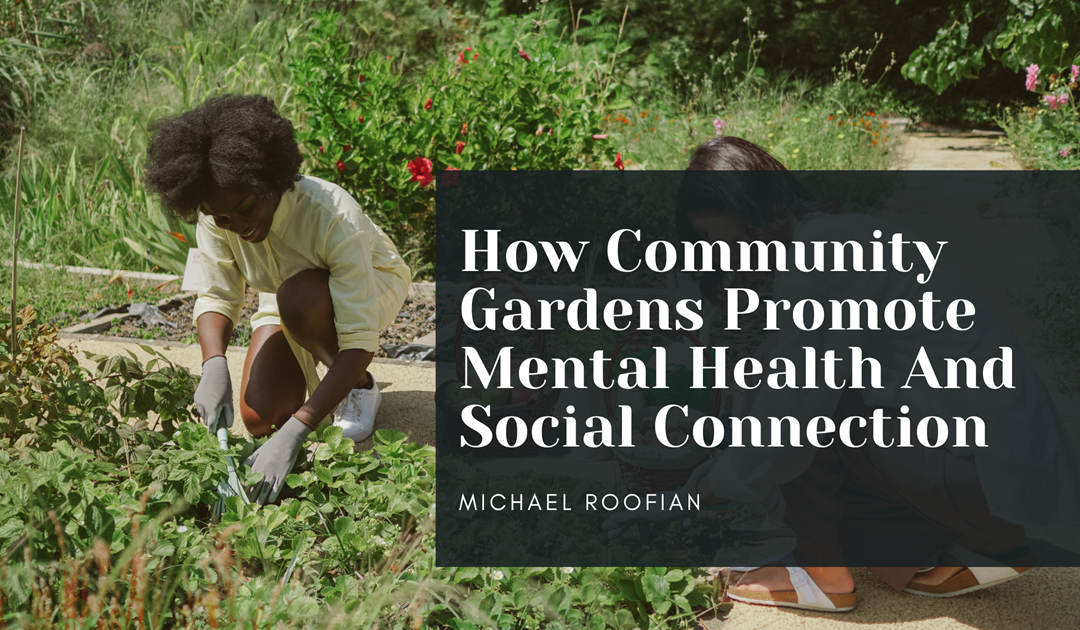In an era of increasing urbanization and digital interactions, the value of green spaces in fostering well-being and connection cannot be overstated. Community gardens have emerged as vital sanctuaries, offering a blend of nature, collaboration, and purpose. These shared spaces serve not only as a means of promoting mental health but also as hubs for cultivating social connections.
The simple act of gardening is inherently therapeutic. Engaging with soil, planting seeds, and nurturing plants offer a unique sense of accomplishment and grounding. Numerous studies show that spending time in green environments reduces cortisol levels, the body’s primary stress hormone. Gardening encourages mindfulness, allowing individuals to focus on the present moment, which can help alleviate symptoms of anxiety and depression. The repetitive, hands-on nature of gardening has also been linked to improved mood and cognitive function, providing an outlet for individuals seeking to decompress from the pressures of daily life.
Community gardens extend these benefits by fostering a sense of belonging and shared purpose. In these spaces, people of all ages and backgrounds come together to work collaboratively, creating an environment that celebrates diversity and inclusivity. This collective effort reduces feelings of isolation, a factor often linked to poor mental health. Through shared experiences, gardeners forge meaningful relationships, offering support systems that extend beyond the garden’s boundaries.
Participation in community gardens also instills a sense of purpose. For individuals struggling with mental health challenges, having a structured activity can provide direction and motivation. Watching plants grow and thrive as a result of their care creates a tangible sense of achievement. This can be particularly beneficial for those recovering from trauma or experiencing feelings of helplessness, as it demonstrates the impact of consistent effort and nurturing.
The educational opportunities within community gardens further enhance mental well-being. Learning about sustainable farming practices, nutrition, and environmental stewardship fosters personal growth and a deeper connection to nature. These activities also engage the mind, offering cognitive stimulation that is particularly beneficial for older adults. Workshops, group discussions, and skill-sharing sessions create a dynamic environment that promotes both individual and collective learning.
Community gardens also play a crucial role in addressing food insecurity and promoting physical health. By growing fresh produce, participants gain access to nutritious food, which is vital for overall health, including mental well-being. Eating a diet rich in fruits and vegetables has been linked to improved mood and reduced symptoms of depression. The physical activity involved in gardening—digging, planting, and weeding—provides exercise that further supports mental and physical health.
In addition to individual benefits, community gardens contribute to neighborhood revitalization. These spaces often transform neglected areas into vibrant green hubs, fostering pride and cohesion among residents. The aesthetic appeal of a well-maintained garden can improve the overall atmosphere of a community, encouraging more outdoor activity and engagement. This sense of shared investment in the community’s well-being strengthens social ties, creating a ripple effect of positive interactions and mutual support.
Community gardens are also platforms for intergenerational connections. Children, adults, and seniors often work side by side, exchanging knowledge and building relationships. For younger participants, these gardens provide a hands-on education about responsibility, teamwork, and environmental stewardship. For seniors, they offer a sense of purpose and an opportunity to stay physically active while sharing their wisdom and experience.
The mental health benefits of community gardens extend beyond the individual and into the broader social fabric. As participants develop empathy and understanding through collaboration, they create a culture of mutual respect and support. These gardens become safe spaces where individuals can express themselves, share stories, and find solace in the company of others.
Creating and maintaining a community garden requires commitment and collaboration, but the rewards are profound. Local governments, schools, and organizations can support these initiatives by providing funding, land, and resources. Encouraging community involvement through workshops, events, and outreach efforts can help sustain these gardens and ensure they remain accessible to everyone.
Community gardens are much more than plots of land for growing food. They are vibrant spaces where mental health is nurtured, social connections are forged, and communities are strengthened. By bringing people together to work towards a common goal, these gardens serve as powerful reminders of the healing and unifying power of nature.
